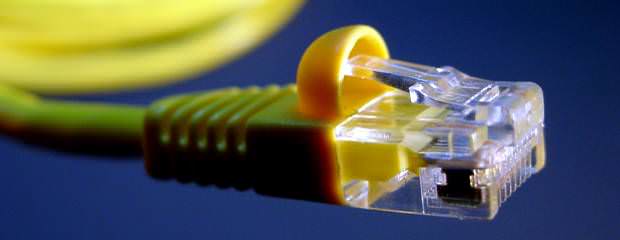
Why 3G broadband can be better and cheaper than ADSL
Quite often the solutions involve routing voice calls via your broadband connection, whether that be UMA, Skype, traditional SIP-based VoIP (Voice over Internet Protocol) or even a femtocell. However what if you can get a good mobile signal, yet your broadband is lousy?
That plight is more common than you might think, because cable companies just as Virgin Media only in effect provide service in areas of dense population, and the same is true of BT's fibre-based Infinity service. The rest of us are left with ADSL services running over copper telephone wire between the local telephone exchange and our homes or offices, and there are many factors that can cause the speed and reliability of ADSL to be poor. You might be too far from the exchange - ADSL performance tails off the furthermore you are away from it.
Worse after all, some stretches of wire may not be copper at all, because while the 1970s and 1980s, BT would at times employ aluminium cable instead within the local loop. That seemed like a good idea at that time, because aluminium was cheaper and lighter for engineers to lug around, and it worked fine for voice calls, nevertheless unfortunately it has a destructive effect on ADSL performance.
The weather
Other factors I've seen reduce people's ADSL performance include the weather, proximity to big TV or radio transmitters and, clearly, the quality of the extension wiring within their house. So, what can you do if you're sitting on the end of a so-called "up to 24Mbits/sec" broadband connection that's barely delivering 512Kbits/sec?
There's always satellite data, nevertheless as I explained in a recent column, "proper" satellite data is expensive, it isn't especially fast and it can be quite laggy. There's an intermediate option that uses the satellite to receive only, during pushing outbound data through your normal phone line, yet for many business users this simply isn't sensible; when you email a huge PowerPoint file to your boss, you as a matter of fact don't want it to take all night.
Viable alternative but?
Is mobile data a viable alternative but? Is it good enough to replace a fixed-line broadband service these days? Yes, I think it after all is. I remember writing about this very issue around four years ago and coming to a very different conclusion.
Back in 2008, there were fast mobile data services available - 3G from most of the mobile networks, with high-speed downlink packet access in key cities that typically offered around 7.2Mbits/sec. When you tried to use these, still, there were plenty of drop-outs, and speed was often fine for the first few minutes nevertheless became throttled once you ramped up the data volume. Back at the time, mobile data could be a frustrating experience. Things seem much better now with all the UK networks rolling out high-speed packet access plus, which offers speeds up to 42Mbits/sec. To make up for it, coverage is pretty good these days, especially on 3's network.
- · Rackspace debuts OpenStack cloud servers
- · America's broadband adoption challenges
- · EPAM Systems Leverages the Cloud to Enhance Its Global Delivery Model With Nimbula Director
- · Telcom & Data intros emergency VOIP phones
- · Lorton Data Announces Partnership with Krengeltech Through A-Qua⢠Integration into DocuMailer
